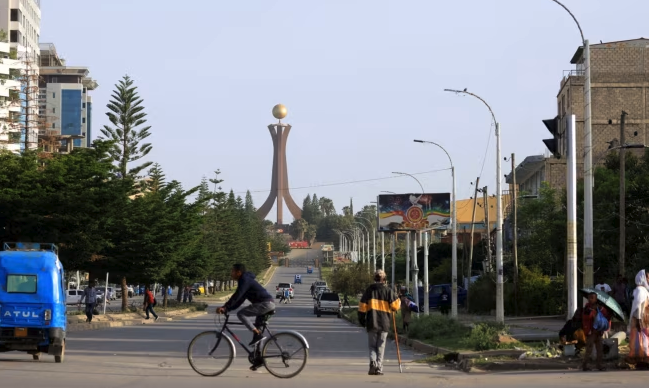Fitch, the world's third - largest rating agency, released a credit rating report on Ethiopia, maintaining Ethiopia's "Selective Default" rating of C for its long - term foreign - currency debt since December 2023. In December 2023, Ethiopia failed to pay the $33 - million interest on a $1 - billion bond from Europe on schedule.
Just like individuals, countries, regardless of their size, may borrow from foreign countries to achieve rapid development driven by funds. A higher rating is conducive to a country raising funds at a lower cost in the international market and attracting foreign investment. In contrast, a lower rating may lead to difficulties in financing, an increase in financing costs, and may also trigger problems such as capital outflows. The common rating levels of the three major international rating agencies generally range from high to low as AAA, AA, A, BBB, BB, B, CCC, CC, C. The ratings from AA to CCC can be accompanied by a "+" or "-" sign to indicate strength or weakness respectively. For example, an AAA rating indicates an extremely strong ability to repay debts. The government has a strong capacity to manage the economy and society, its policies are continuous and stable, the economy is prosperous, and the economic structure is diversified, enabling it to resist risks. It creates a favorable environment for people and business investment, representing the highest rating for sovereign ratings. While a C - level "Selective Default" is the lowest rating. In some media translations, the term "junk" (looms) is directly used to describe this level, and it is not recommended that foreign governments and financial institutions lend money to this region or conduct business operations here.
Fitch Ratings was founded in 1913 and is smaller in scale compared to Standard & Poor's and Moody's. A country's credit rating is an assessment by a credit rating agency of a country's credit willingness and credit ability to fulfill its debt - repayment responsibilities as a debtor.
On December 14, 2013, Ethiopia experienced a material default as it failed to pay the $33 - million interest on its European debt on time. Fitch downgraded Ethiopia's Long - Term Foreign - Currency (LTFC) Issuer Default Rating (IDR) from "CC" to "C", and Fitch does not provide a reference outlook for the development of countries with a rating of "CCC+" or below. "Selective Default" will prevent Ethiopia from obtaining most foreign loans and will result in higher borrowing interest rates. The prosperity of a country is often the result of using new debts to pay off old debts. Within a certain period, development is promoted by expanding its debt. However, once new financial sources cannot be obtained, the country will lose the impetus for development.
In its latest rating report, Fitch stated that only when Ethiopia completes the foreign - currency debt restructuring process with private creditors can its long - term foreign - currency issuer default rating get out of the default range. During the negotiations between the International Monetary Fund, the World Bank, and Ethiopia, Ethiopia was required to clarify and restructure its existing debt structure first before new loans would be provided. Some creditor countries have thus waived some of Ethiopia's debts. At the same time, they also require Ethiopia to carry out economic reforms, open up some markets, and relax exchange - rate controls to promote economic and social development and obtain new sources of income. Fitch upgraded Ethiopia's long - term local - currency issuer default rating from "CCC" to "CCC+", citing "eased fiscal pressure, enhanced macro - economic stability, and the policy expectation that local - currency debt will not be included in the restructuring scope".
Regarding Fitch's latest rating, Vera Songwe, the Executive Secretary of the United Nations Economic Commission for Africa, sharply criticized the international rating system. She believes that rating agencies are biased against African countries and calls for the establishment of "internationally credible African - based rating agencies" to more objectively assess the creditworthiness of African countries.
Ethiopia is the second - most populous country in Africa and has been in an unstable development state for a long time. Hundreds of thousands of people died in the civil war from 2020 - 2023. Currently, Tigray in the northeast and Oromia in the northwest are still under the threat of war. Against this backdrop, as the country develops, its debt is increasing rapidly, leaving Ethiopia with insufficient foreign exchange to pay the existing loan interest. Ethiopia is striving for a 10 - year extension of its existing debts from relevant creditor countries.



